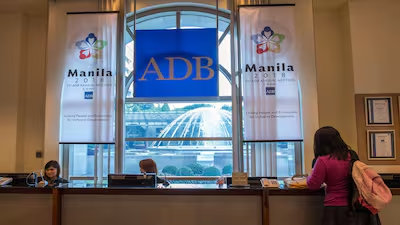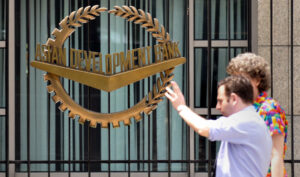
India requests that the Asian Development Bank halt its funding of Pakistan.
A Change in Approach to Financial Diplomacy in South Asia

A major change in regional financial diplomacy is indicated by India’s recent request that the Asian Development Bank (ADB) halt funding to Pakistan. The appeal is made in the wake of the Pahalgam terror attack on April 22, which has increased tensions between the two neighbouring countries and raised concerns about the financing of terrorism.
This development is not just a bilateral conflict; rather it is part of India’s larger plan to use international institutions to stop financial flows to Pakistan. The request has significant geopolitical ramifications as New Delhi is now voicing concerns to other multilateral development banks such as the World Bank and the International Monetary Fund (IMF).
Adnan Sami’
India’s Justification for the Request

India’s efforts to stop providing financial aid to Pakistan stem from ongoing worries about terrorist attacks coming from its neighbour to the west. Pakistan has been repeatedly cited by the Financial Action Task Force (FATF) and other international organisations for its insufficient efforts to combat the financing of terrorism.
India has stepped up its efforts to block financial channels that might allegedly aid terrorist organisations in the wake of the April 22 Pahalgam attack which claimed the lives of security personnel. Under the leadership of Finance Minister Nirmala Sitharaman the Indian government has directly expressed its concerns to ADB President Masato Kanda and demanded prompt action.
The Function of ADB and Its Financial Connections to Pakistan

An important source of funding for Pakistan’s projects in the fields of infrastructure education and health has been the Asian Development Bank. ADB’s funding is a vital lifeline for Pakistan’s economy which is beset by severe problems like high inflation currency depreciation and fiscal deficits.
Given its mandate to support developing economies the ADB’s response to India’s request to halt aid to Pakistan is uncertain. Pakistan may have more difficulty recovering economically if the ADB stops or cuts funding which could increase regional instability.
Pakistan’s Reaction and Diplomatic Repercussions

Pakistan has unsurprisingly denounced India’s action calling it a politically driven attempt to isolate Islamabad globally. The government of Pakistan maintains that geopolitical rivalries shouldn’t have an impact on ADB projects since they are essential for socioeconomic development.
In a diplomatic sense this request might worsen already strained ties between India and Pakistan brought on by disagreements over trade restrictions Kashmir and cross-border terrorism. International financial institutions may set a precedent for future dealings if they heed India’s concerns and reevaluate their relations with Pakistan.
What’s Next?
Even though ADB has not yet formally responded to India’s request the course of events will be determined in the upcoming weeks. Pakistan might be forced to look for alternate funding sources like Chinese investments or regional partnerships if ADB agrees to even partial restrictions.
India is anticipated to keep up its diplomatic efforts in the interim pleading with organisations such as the World Bank and IMF to reevaluate lending money to Pakistan. In the long run, this more comprehensive approach may change the political and economic climate in South Asia.





